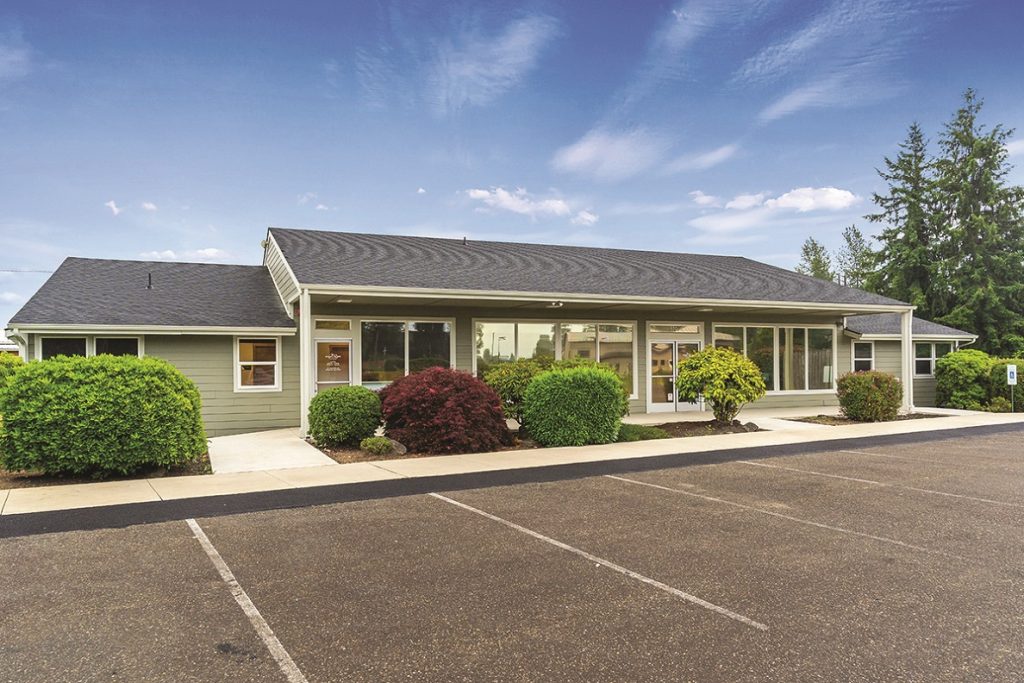The Washington State Department of Health reports that 68% of overdose deaths between 2007 and 2021 involved an opioid. Since 2019, opioid deaths have nearly doubled in our state alone. To combat these numbers locally, Summit Pacific Medical Center opened a MAT Clinic that helps with medication assisted treatment (MAT) on an accessible, walk-in basis. Working to break the cycle can help patients with their recovery journey and Summit Pacific is here to help.

Combatting the Opioid Pandemic and Supporting Recovery at Summit Pacific Medical Center
Medication assisted treatment works by transferring physical dependence on opioids to medications that can be managed by medical professionals. Summit Pacific Medical Center’s Medical Assisted Treatment Clinic staff treats patients and partners with local agencies to find the programs and resources that work for each individual’s unique, personalized needs.
The Food and Drug Administration [hypertext link not necessary] says that by using MAT treatment in conjunction with counseling and behavioral therapy, many people with opioid use disorders can achieve sustained recovery. The National Institute on Drug Abuse explains it beautifully. “Just as body tissues require prolonged periods to heal after injury and may require external supports (e.g., a cast and crutches or a wheelchair for a broken leg), brain circuits that have been altered by prolonged drug use and substance use disorder take time to recover and benefit from external supports in the form of medication.” This is where Medical Assisted Treatment Clinics like Summit Pacific Medical Center come in.
A Stigma-Free Walk-in Clinic for Medication Assisted Treatment of Opioid Addiction
At Summit Pacific’s Medical Assisted Treatment Clinic, open Monday through Friday, new patients can expect a simple intake, like seeing your everyday doctor. They’ll fill out paperwork, have a physical examination, and then work with healthcare professionals on an evaluation, consultation, and creating a personalized treatment plan. Care navigators provide support and help patients access necessary resources along the way.
Once established as MAT patients, walk-in patients will receive same-day evaluation and treatment with no prequalification or refusal to be seen. Staff offer flexible treatment plans that help decrease cravings, stop the cycle, and start a new, opioid-free life.
Sara Kinnison is a Certified Addiction Registered Nurse and lead RN of the Medical Assisted Treatment Clinic. She explains that they provide Suboxone, Vivitrol, and Sublocade to decrease and hopefully control opiate triggers and cravings.
Their clinic now has someone from Community Integrated Health on site each Thursday from 8 a.m. until 3 p.m. to help provide counseling and drug assessments and find inpatient, intensive outpatient, or detox programs if needed.
“We do not require any kind of treatment or counseling to receive MAT services,” says Kinnison. “We are low barrier, which means we do not have a lot of rules, and that makes it easier to get medication assisted treatment. We do not penalize for positive urine drug screen results, and we do not kick people out of our program unless there is violent or inappropriate behavior. This type of environment is friendly and kind, and we want to help you succeed! No judgment, and we meet you where you are.”

Outpatient Opioid Treatment Nitty Gritty
Kinnison says that they take insurance or have grant funding, which helps with the cost. Summit Pacific Medical Center’s Medical Assisted Treatment Clinic accepts Wellpoint Medicaid, some Medicare plans, and most commercial insurance. They also treat hepatitis C and test all patients for hepatitis A, B, C, HIV, syphilis, gonorrhea, chlamydia, and trichomonas if patients want to be tested. Staff can even prescribe PrEP for HIV, which is a preventative medication for anyone at risk of acquiring HIV. To learn more, call 360.346.2346 or email MATclinic@sp-mc.org.
At the end of the day, Summit Pacific Medical Center’s Medical Assisted Treatment Clinic staff are here to help patients succeed. Kim Miker is one of their medical providers, and she seconds Kinnison’s welcoming approach and transparent explanations. “The work that the MAT clinic provides is life-changing, and I’m so glad that Summit Pacific Medical Center is committed to helping Grays Harbor County with this medical service,” says Miker. “Our staff is committed to helping patients achieve recovery by meeting them where they are: no judgment, no punishment. We understand that people have a varied lived experience with substance use disorders, and we aim to meet their needs in a safe, non-judgmental environment.”
There are patient testimonial videos that explain the process and resources on the Summit Pacific Medical Center’s Medical Assisted Treatment Clinic website. Loved ones can find guides for patients, families, and friends, details on medication and counseling treatment or information about addiction from the University of Washington and National Institute on Drug Abuse. Working together, we can combat the opioid epidemic one person at a time.
Sponsored













































